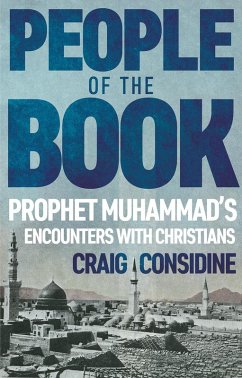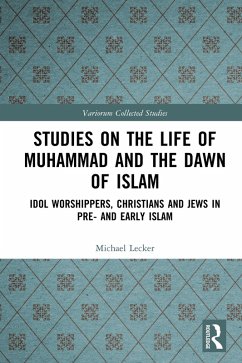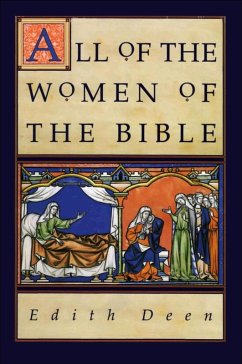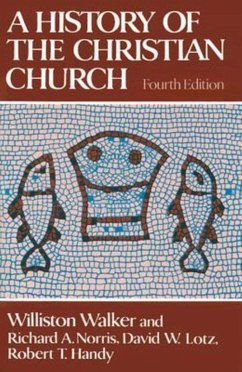
Christianity and Islam (eBook, ePUB)
Versandkostenfrei!
Sofort per Download lieferbar
2,49 €
inkl. MwSt.
Weitere Ausgaben:

PAYBACK Punkte
0 °P sammeln!
A comparison of Christianity with Muhammedanism or with any other religion must be preceded by a statement of the objects with which such comparison is undertaken, for the possibilities which lie in this direction are numerous. The missionary, for instance, may consider that a knowledge of the similarities of these religions would increase the efficacy of his proselytising work: his purpose would thus be wholly practical. The ecclesiastically minded Christian, already convinced of the superiority of his own religion, will be chiefly anxious to secure scientific proof of the fact: the study of ...
A comparison of Christianity with Muhammedanism or with any other religion must be preceded by a statement of the objects with which such comparison is undertaken, for the possibilities which lie in this direction are numerous. The missionary, for instance, may consider that a knowledge of the similarities of these religions would increase the efficacy of his proselytising work: his purpose would thus be wholly practical. The ecclesiastically minded Christian, already convinced of the superiority of his own religion, will be chiefly anxious to secure scientific proof of the fact: the study of comparative religion from this point of view was once a popular branch of apologetics and is by no means out of favour at the present day. Again, the inquirer whose historical perspective is undisturbed by ecclesiastical considerations, will approach the subject with somewhat different interests. He will expect the comparison to provide him with a clear view of the influence which Christianity has exerted upon other religions or has itself received from them: or he may hope by comparing the general development of special religious systems to gain a clearer insight into the growth of Christianity. Hence the object of such comparisons is to trace the course of analogous developments and the interaction of influence and so to increase the knowledge of religion in general or of our own religion in particular.
A world-religion, such as Christianity, is a highly complex structure and the evolution of such a system of belief is best understood by examining a religion to which we have not been bound by a thousand ties from the earliest days of our lives. If we take an alien religion as our subject of investigation, we shall not shrink from the consequences of the historical method: whereas, when we criticise Christianity, we are often unable to see the falsity of the pre-suppositions which we necessarily bring to the task of inquiry: our minds follow the doctrines of Christianity, even as our bodies perform their functions-in complete unconsciousness. At the same time we possess a very considerable knowledge of the development of Christianity, and this we owe largely to the help of analogy. Especially instructive is the comparison between Christianity and Buddhism. No less interesting are the discoveries to be attained by an inquiry into the development of Muhammedanism: here we can see the growth of tradition proceeding in the full light of historical criticism. We see the plain man, Muhammed, expressly declaring in the Qoran that he cannot perform miracles, yet gradually becoming a miracle worker and indeed the greatest of his class: he professes to be nothing more than a mortal man: he becomes the chief mediator between man and God. The scanty memorials of the man become voluminous biographies of the saint and increase from generation to generation.
A world-religion, such as Christianity, is a highly complex structure and the evolution of such a system of belief is best understood by examining a religion to which we have not been bound by a thousand ties from the earliest days of our lives. If we take an alien religion as our subject of investigation, we shall not shrink from the consequences of the historical method: whereas, when we criticise Christianity, we are often unable to see the falsity of the pre-suppositions which we necessarily bring to the task of inquiry: our minds follow the doctrines of Christianity, even as our bodies perform their functions-in complete unconsciousness. At the same time we possess a very considerable knowledge of the development of Christianity, and this we owe largely to the help of analogy. Especially instructive is the comparison between Christianity and Buddhism. No less interesting are the discoveries to be attained by an inquiry into the development of Muhammedanism: here we can see the growth of tradition proceeding in the full light of historical criticism. We see the plain man, Muhammed, expressly declaring in the Qoran that he cannot perform miracles, yet gradually becoming a miracle worker and indeed the greatest of his class: he professes to be nothing more than a mortal man: he becomes the chief mediator between man and God. The scanty memorials of the man become voluminous biographies of the saint and increase from generation to generation.
Dieser Download kann aus rechtlichen Gründen nur mit Rechnungsadresse in A, B, BG, CY, CZ, D, DK, EW, E, FIN, F, GR, H, IRL, I, LT, L, LR, M, NL, PL, P, R, S, SLO, SK ausgeliefert werden.













